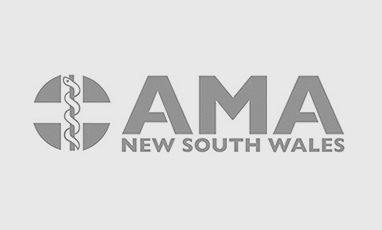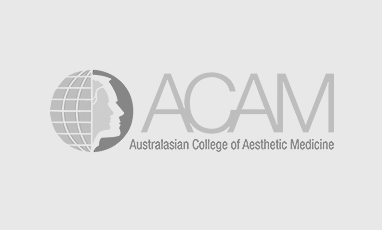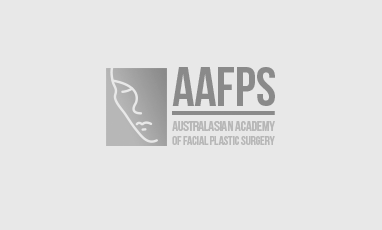WHAT IS SLEEP APNOEA?
Sleep apnoea and sinus surgery are common inquiries in Dr Mooney’s practice. While we sleep all of the body’s muscle-tone relaxes. In most parts of the body this does not matter and indeed helps one to relax and sleep comfortably.
When the muscles that help hold open the throat behind the tongue relax, this leads to partial collapse and narrowing in this area. Even in normal people this increases the resistance to the flow of air when breathing in, but this is usually of no significance. When this narrowing that occurs is excessive, there can be obstruction to breathing. This obstruction can be mild, causing snoring and then, when the collapse is complete, it causes apnoea. Apnoea is cessation of breathing. Nasal obstruction can also contribute to this presentation.
Fortunately, the body is able to sense this increased obstruction to breathing and forces the sufferer to wake up briefly to draw in a few breaths of air and then return to sleep. This obstruction and waking often becomes a continuous cycle, every minute or so, that can go on hundreds of times a night, every night.
Usually though, the individual does not remember all these episodes of waking. This of course can lead to the person feeling constantly tired and run down. This can affect work, concentration and mood. It can also have significant health implications raising blood pressure and is associated with heart disease.
CAUSES OF SLEEP APNOEA
In general terms causes are three-fold: general, nasal obstruction and throat obstruction. General features are alcohol and smoking, being over the age 40, being male and being overweight. The last of these is the most important general feature, and if patients are significantly overweight surgical success is limited. Nasal obstruction is most commonly due to a deviated septum and/or allergic rhinitis (hay fever) although any of the many causes of nasal obstruction can be implicated. Throat obstruction is usually due to a long palate and the presence of residual tonsil tissue, (although other features such as a recessive jaw, or excessively large tongue can be implicated).
Please contact our Patient Coordinator through our Online Inquiry Form or call 02 8897 0079 to book a consultation today.
Any surgical or invasive procedure carries risks. Before proceeding, you should seek a second opinion from an appropriately qualified health practitioner.
FAQ’S
Expect to spend about an hour with Dr William Mooney for a thorough ENT consultation.
Examination is key and we start with weight. Any man over 100kg and 80kg in women snores, if the patients weight is within this range the surgery is not as effective.
If a patient has a lower BMI the snoring is due to the nose or throat or combination of the two.
Nasal problems such as a deviated septum, broken nose or bad hay fever can contribute. Throat problems such as big tonsillitis, long palette, recessive jaw or a big base of tongue all can contribute. Once we have this data we can plan a treatment for this patient.
You will first be greeted by Dr Mooney’s receptionists, they will ask you to fill in a form with basic details.
This is followed by a formal consultation with Dr William Mooney.
He will assess your full medical history and a medical examination is performed.
In particular, Dr Mooney will exam features such as nasal dysfunction, obstruction and the patients weight and BMI are important to know.
It is also most useful if the patients sleeping partner is present as they can most accurately report the nature of the patients snoring and whether there seems to be a component of obstruction and snoring that can range from mild noisy snoring right through to severe obstructive sleep apnoea. An apnoea is defined as a pause in breathing whilst sleeping that can last from a few to several seconds. More than 15 pauses per sleep is considered a clinical significance and can have significant impact on the health and psychological wellbeing of the patient, not to mention the erosive nature of snoring on any relationship!
Examination is key and we start with weight. Any man over 100kg and 80kg in women snores, if the patients weight is within this range the surgery is not as effective.
If a patient has a lower BMI the snoring is due to the nose or throat or combination of the two.
Nasal problems such as a deviated septum, broken nose or bad hay fever can contribute. Throat problems such as big tonsillitis, long palette, recessive jaw or a big base of tongue all can contribute.
Once we have this data we can plan a treatment for this patient. The treatment may be something as simple as nose spray, weight loss and might range through to nose and throat surgery.
Dr William Mooney will then discuss operative planning, risks and complications.
We always have at least two consultations before surgery. This cooling off period is essential as this is such an important life decision. It is a healthcare stipulation for young patients but we apply to all patients.
At our subsequent consult, we discuss the finer details of the pre-operative treatment; what to wear, eat, think and do as your operation approaches.
The procedure is safe and enjoys a low complication profile.
Nose and/or throat surgery is performed under general anaesthetic in a formal theatre setting.
In nose surgery, a routine septoplasty and turbinate reduction is performed, although cosmetic or sinus surgery may be added.
Throat surgery is usually a palate plasty surgery, this is when the remnant tonsils, uvula and excess soft palate tissue is removed.
The neo palate is sewn up in theatre and splints are placed inside the nose.
The results in slimmer patients are excellent BUT this involves a tricky recovery. Pain is a real feature, especially the throat component of this procedure. It is not unbearable and recovery is usually very well tolerated and results are generally excellent with a clear improvement in quality of life.
Following your first ENT consultation, the wait period for surgery is between two to six weeks.
Surgery can take about one to two hours.
The surgery itself is not painful, but pain is a real feature in the recovery, especially the throat component of this procedure. It is not unbearable and recovery is usually very well tolerated and results are generally excellent with a clear improvement in quality of life.
There should be no swelling or bruising, it is an internal surgery only.
Two weeks off work is sufficient.
Dr Mooney and the pre-operative nurse will go through all of your operative planning a couple of weeks before sleep apnoea and sinus surgery.
Dr Mooney usually suggests an overnight stay, in some cases two nights for patient comfort and support.
Bondi Junction Private and Lingard Private Hospital.
Dr Mooney performed his first sinus and sleep apnoea procedure in 1996.
As soon as the splints are removed, patients notice a radical improvement in breathing.
The surgery itself is not painful, but pain is a real feature in the recovery, especially the throat component of this procedure. It is not unbearable and recovery is usually very well tolerated and results are generally excellent with a clear improvement in quality of life.
Prior to your sleep apnoea and sinus surgery, you may be advised to stop and start certain supplements.
Dr Mooney and the pre-operative nurse will go through all of your operative planning a couple of weeks before surgery.
Prior to your procedure, patients are required to lock in the post-operative appointments with Dr Mooney and the post-operative nurses. Dr Mooney and the pre-operative nurse will go through all of your operative planning a couple of weeks before sleep apnoea and sinus surgery.
Typically, Dr Mooney will ask international sleep apnoea and sinus surgery patients to stay in Sydney for two weeks.
Typically, Dr Mooney will ask our interstate sleep apnoea and sinus surgery patients to stay in Sydney for two weeks.
A portion of sleep apnoea and sinus surgery can be claimed via Medicare. Depending on the level of health cover you have, there may be claimable items such as hospital cover. This will be determined following a consultation with Dr William Mooney.
Following a snoring and sleep apnoea procedure, no exercise week one, walking week two, light cardio week three is permitted, light weights week four and back to normal week five to six.
The results of a snoring and sleep apnoea procedure are permanent. Although, if patients put on weight snoring can return.
Patients will see generally, excellent results with a clear improvement in quality of life in two weeks.




